As the world shifts towards digital solutions, even something as simple as a business card is getting a modern upgrade. Digital business cards offer a more efficient, eco-friendly, and engaging way to share information. From QR codes to NFC and RFID technologies, each offers unique features that cater to different professional needs.
In this guide, we’ll explore the different types of digital business cards, QR Code, NFC, and RFID highlighting their advantages and how they work.
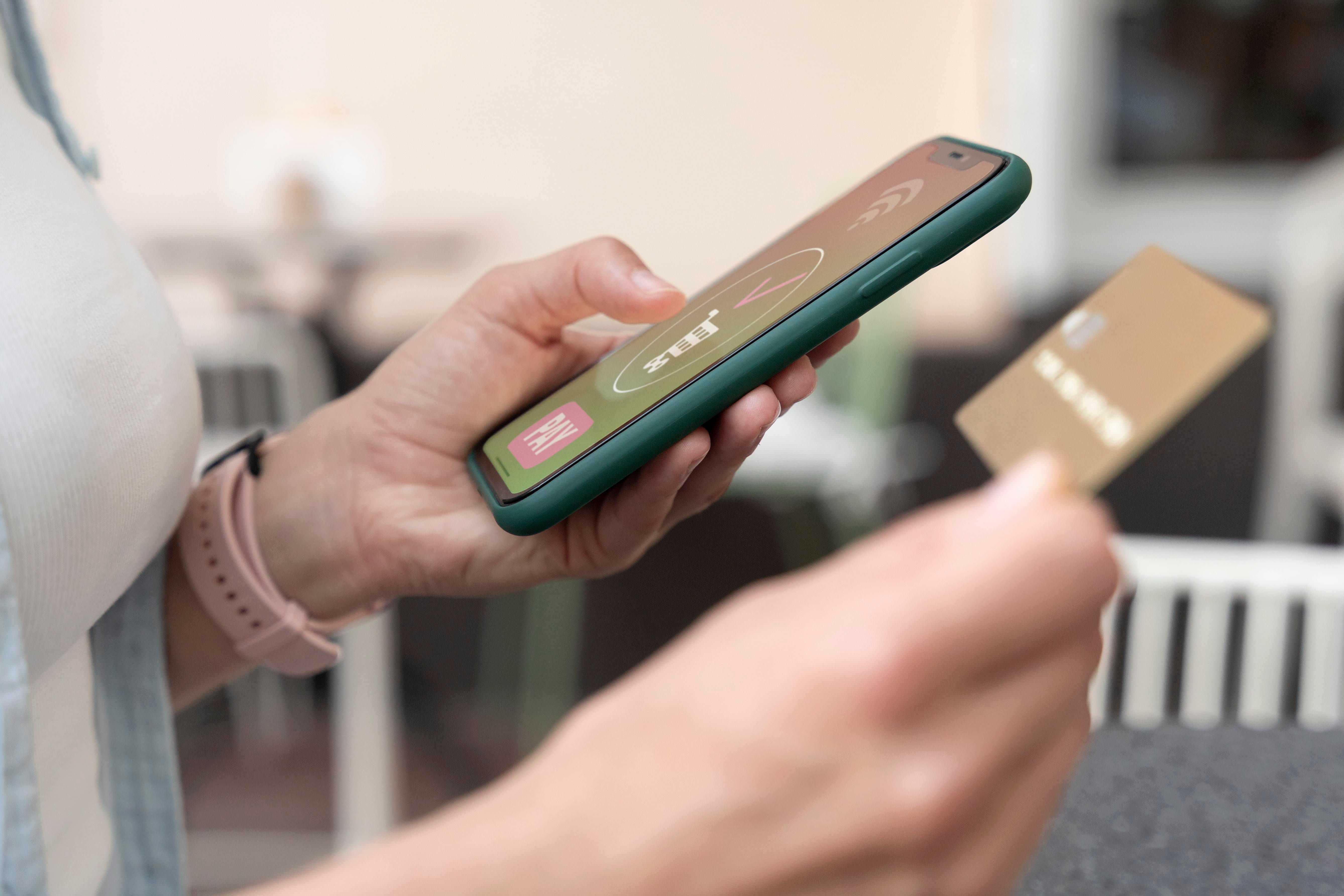
What Are Digital Business Cards?
Digital business cards allow you to share contact details and other essential information without the need for paper. With just a scan or tap, your details can be transferred to someone else’s smartphone, making networking faster and more effective. Unlike traditional paper cards that often get lost, digital business cards are always accessible and easy to update.
The Different Types of Digital Business Cards
There are three main types of digital business cards: QR code business cards, NFC business cards, and RFID business cards. Each uses different technology to share information quickly and conveniently.
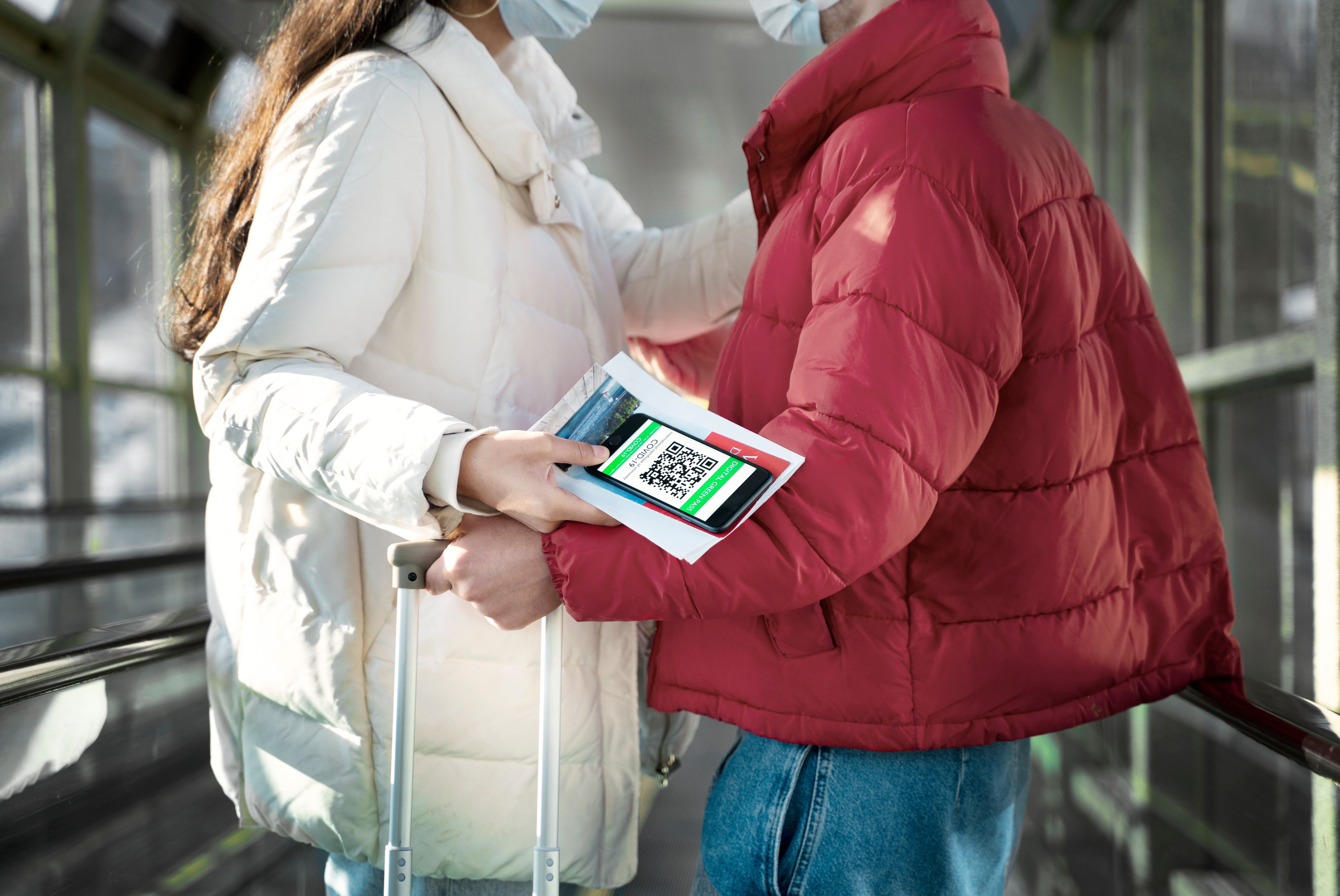
QR Code Business Cards
QR (Quick Response) Codes are one of the most common forms of digital business cards today. These black-and-white matrix barcodes store your information, which can be scanned using any smartphone camera. When scanned, the QR code can direct the user to a website, contact card, or any online resource containing your details. It’s a simple, cost-effective solution that works across all devices.
But is having a QR code on business card good or bad? Generally, it’s considered a good option for those who want an easy-to-implement solution. However, the downside is that some people may find QR codes less sleek or professional in appearance compared to other digital options.
Why QR Code Digital Cards?
-Ease of use: Most smartphones have built-in QR scanners.
-Cost-effective: Creating a QR code is free or inexpensive.
-Compatibility: QR codes work across all mobile devices, making them universally accessible.
Ideal for: Anyone looking for a low-cost, widely accepted solution to share contact details quickly
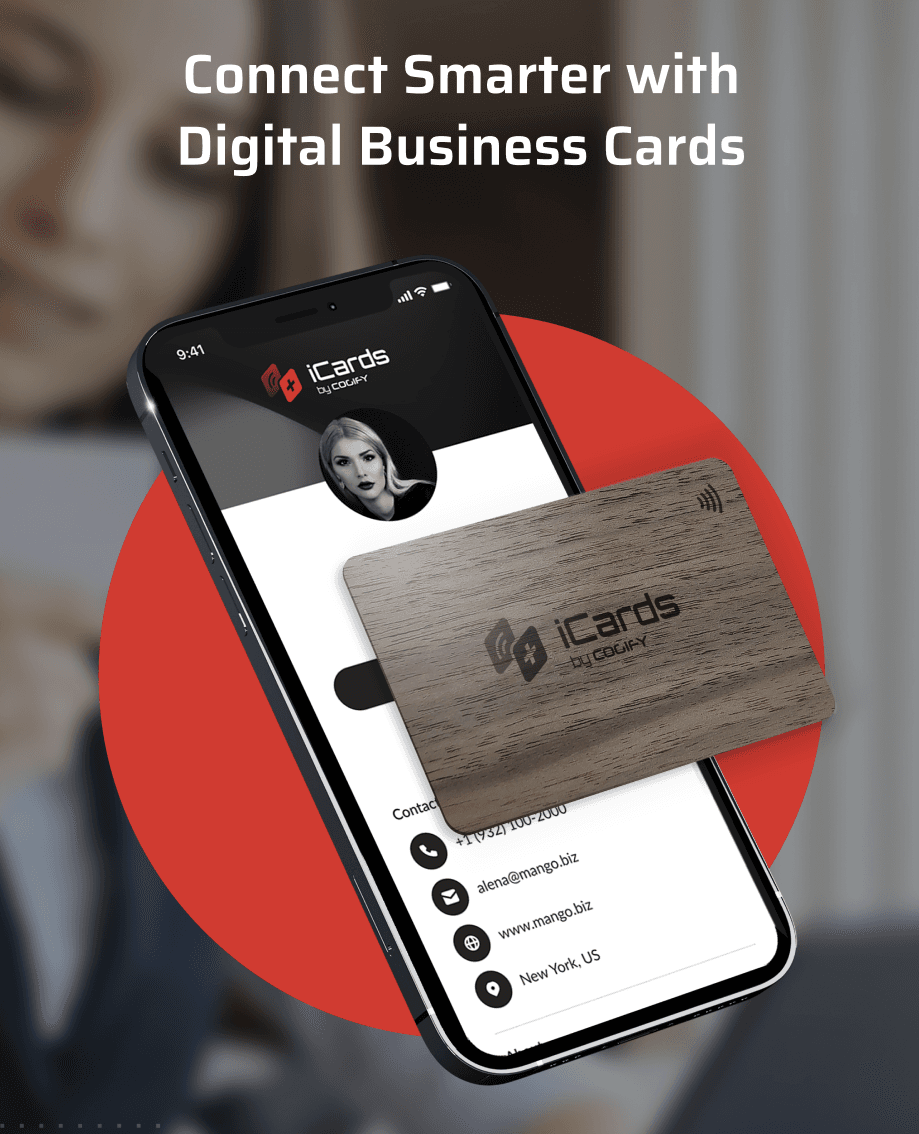
NFC Business Cards
NFC (Near Field Communication) is becoming an increasingly popular choice for digital business cards. So, how does an NFC business card work? It’s simple: when an NFC-enabled card is tapped against a smartphone, your contact details are instantly shared. There’s no need to scan a code or manually input information.
NFC technology is gaining popularity in business due to its seamless experience. But what is NFC? It stands for near-field communication, enabling two devices to exchange information when they’re close together similar to how NFC Google Wallet and contactless payments work.
The NFC secure channel ensures data protection, making it a reliable NFC security system. This is crucial in industries like tech and finance, where security is a top priority.
Why NFC Digital Cards?
-Instant transfer: No scanning required—just a tap.
-Futuristic feel: It’s sleek and modern, perfect for tech-savvy professionals.
-No app needed: NFC works seamlessly without needing the recipient to download any special apps.
Ideal for: Professionals, who frequently share contacts and looking for an easy-to-use method of networking, particularly in tech-savvy industries.
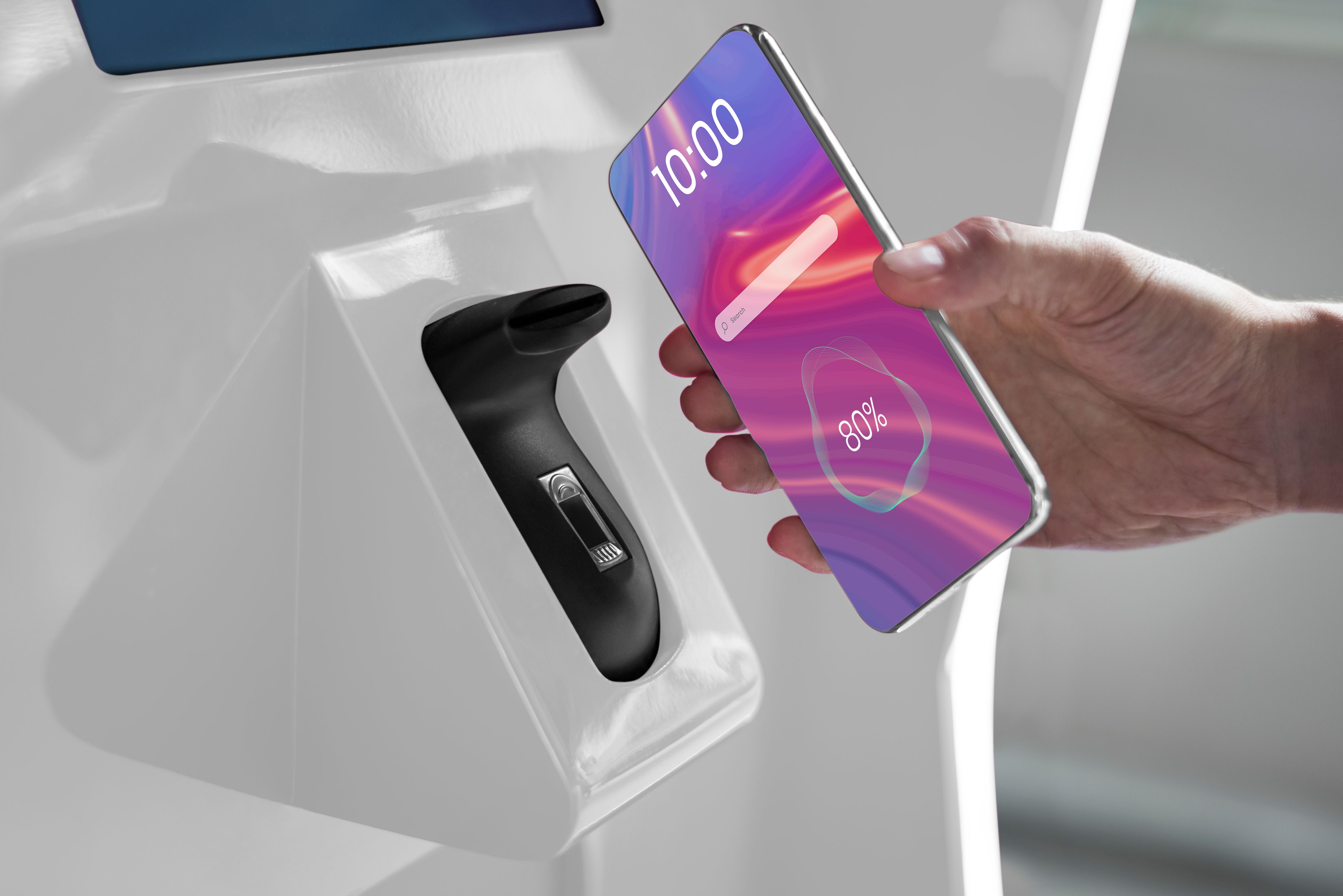
RFID Business Cards
Similar to NFC, RFID (Radio Frequency Identification) uses radio waves to transmit information. The main difference is that an RFID chip can send data over a longer distance than NFC tags. An RFID business card could be used in situations where a greater range is needed, such as large networking events or secured corporate environments.
With an RFID tag, the card doesn't need to be tapped or scanned at close range, making it a unique option for certain professional settings. However, it’s less common for traditional business networking compared to NFC and QR codes.
Why RFID Digital Cards?
-Greater range: Can be read from a few meters away, making it useful in larger networking spaces.
-Secure: Can be encrypted for added security, ideal for industries like finance or healthcare.
-Multi-purpose: Can be integrated with access control systems or other tech ecosystems.
Ideal for: Professionals in industries where security and multi-functionality are key.

How to Choose the Right Type of Digital Business Card
Choosing between a QR code business card, an NFC-enabled card, or an RFID tag depends on your needs and the environment in which you’ll be using the card. If you want something simple and universally accessible, a QR code on business card is a solid choice. It's cost-effective and easy to scan, though it might not feel as high-tech as other options.
For a more futuristic and seamless experience, an NFC business card offers a sleek, tap-and-share process that impresses. The ability to transfer data instantly by simply tapping your card on a smartphone makes it ideal for professionals in creative or tech-savvy industries.
If you work in an industry where NFC security or RFID functionality is essential, such as finance or healthcare, you might prefer the additional capabilities and range of an RFID card. The RFID chip can store more complex data and integrate with access control systems, making it suitable for corporate settings where secure communication is crucial.
But some cards may combine technologies. A hybrid digital business card is typically embedded with an NFC chip and also displays a QR code. This means that the card can function in multiple ways:
NFC Tap-to-Share, if the recipient has a smartphone with NFC technology, they can simply tap the card against their device. The NFC-enabled card will then transfer your information instantly, making the process fast and effortless. This tap-and-go feature is ideal for situations where you want to make a memorable first impression.
QR Code Scanning, for users whose smartphones may not support NFC near-field communication, the QR code on the card offers a reliable backup option. By scanning the code, the recipient can still access your contact details, website, or portfolio just as easily. This combination ensures that your card is compatible with a wider range of devices, covering all bases.
We understand the importance of flexibility in modern networking. That’s why our digital business cards combine the best of QR code, NFC, and even RFID technology. Whether you’re attending a tech conference, working in a high-security environment, or simply meeting new contacts in your everyday professional life, iCards offers a solution that adapts to any situation.
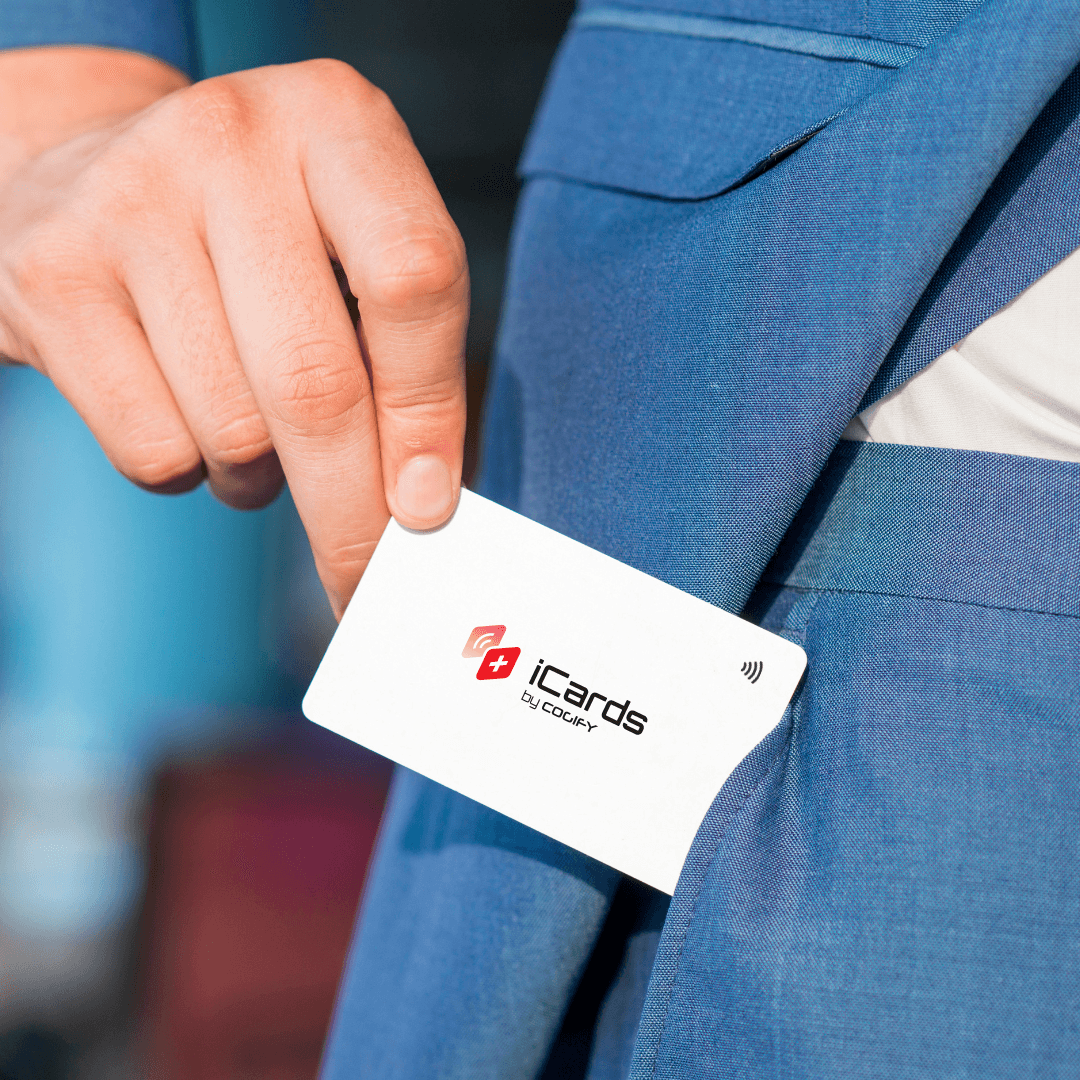
At Cogify, we understand the transformative potential of NFC technology and how it improves business interactions. Our own solution, iCards by Cogify, demonstrates this by integrating NFC into networking, allowing professionals to share information with just a tap. But our expertise doesn’t stop there. We specialize in developing custom software solutions that harness the power of cutting-edge technologies like NFC to drive business efficiency and innovation. Whether it's enhancing your operations or creating smart, scalable solutions, Cogify can help your business stay ahead of the curve. Let’s connect and explore how we can tailor these advancements to your unique needs.








